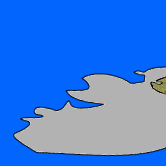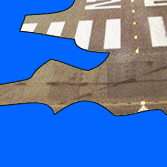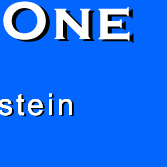 |
 |
 |
 |
 |
 |
 |
 |
 |
January 28, 2002Signing
Off
This will be the last regular column that I will write for Antiwar.com until at least the summer. Being British, I am not fond of long good-byes, so I will limit this column to a few observations of the past two and a bit years that I have been writing for Antiwar.com. WIRING THE WORLDOf course, the first thing that one notices is that the Internet has changed the terms of reporting. This started in Britain during the Kosovo war. Previously the internet's relationship to the news had been as a gossip channel, with questions of the drug habit of this minister's son or the sexuality of that prominent MP. To me this changed with the Rambouillet agreement, which the West hoped to get the Serbs to sign – effectively allowing the West to occupy Serbia. This did not bring people into the streets, but it did mean that anyone with an interest in foreign affairs and access to an Internet cafe could quickly get different perspectives on their country's foreign policy. And not just rants like this, but cold hard facts. This approach was shown in the "Candidlist" site run by Dr. Sean Gabb. The idea was simple, to list those people who wished to stand as Tory candidates and mark them as either Europhile or Eurosceptic according to a simple objective set of criteria. This simple informative act was denounced as "McCarthyism" by many Conservatives – who were terrified of Conservative associations actually choosing candidates with whom they agreed. How many selection meetings this affected I am not sure, but the precedent has been set. This may take some time to filter through, and I don't really see a British general election or referendum in the near future being decided by internet reporting, but the fact is that few of my friends now buy newspapers. This alone is a portent. RIGHT OFFOne area that there does not seem to have been much change is in the Right's view of foreign policy. Sadly, it still seems blissfully unaware of the British national interest. Indeed the replacement of William Hague by Iain Duncan Smith has if anything set the cause back slightly. Iain Duncan Smith is a popular figure in Washington among the neo-Conservative think tanks, and has parroted their views from his position as leader of the opposition. When they called for action against Iraq, so did he. To do that they needed American troops out of Afghanistan, so did Iain call for more peacekeeping? You bet he didn't. Now as in the case above, being pro-American can have its advantages for those of us seeking an independent Britain. The case can be further made that if America is the only power that can lift us out of Europe we should hitch ourselves to it. However, this can only go so far. Any idea of a permanent status as a 51st state or a vassal of an "Anglosphere" Empire will be no better than the European slavery from which we are trying to extricate ourselves now. One example is the reaction to the World Trade Centre bombing. All sensible opinion – right, left or centre – supported Britain's role in the adventure. Now I have no problem with America responding to an attack on its soil by uprooting Al Qaeda, frying Bin Laden and overthrowing anything and everything that gets in its way. Of course it will not be a long-term solution, terrorists unfortunately re-grow – but it would surely lower America's short-term exposure to terrorism. None of this is, however, an argument for Britain to be involved. What national interest of Britain does it serve? Western freedom or licentiousness was not an issue; it was about American Middle Eastern foreign policy. British involvement did not decrease the likelihood of a terrorist attack, as the Home Secretary admitted it radically increased it. Muslim fundamentalism is not a problem in a country where Muslims are a small, if noisy, part of the population. No one even tried to argue that Afghanistan had any strategic import to us. So how was our national interest served? The best that most people can come up with was that America would treat us like a good and loyal overgrown puppy, and remember us when we needed help. After all America is the world's only superpower and we do not want to think for ourselves, do we? If we decided to test this friendship by dealing with the IRA as America deals with Al Qaeda we wouldn't know what was rattling louder, the State Department's sabres or the NORAID collecting tins in Boston. SIGNING OFF, BLOGGING ONSo what is to be done? One of the lessons that you learn from history is to refrain from attacking people for not pursuing a course which had never been put forward. It is all very well to lambaste King George for not extending a universal franchise to every American, but who at the time was suggesting it? In the same vein it is pointless to attack our politicians for not wanting Britain to act in its own interests, when the chattering classes are arguing over whether we should act in the interests of Washington or Brussels. If we are going to rely on politicians to think for themselves on political matters, then we will be waiting an eternity. Therefore, we need to set out the alternative to a British audience. I am bringing in bright new contributors to my web log. The first two are Christopher Montgomery, an historian and a former aide to the Tory leader Iain Duncan Smith, and David Carr, a young polemicist who is making waves in the small Libertarian community in London. More contributors will be added over time, with the idea of making it into the one place on the web to find commentary about British foreign policy from the viewpoint of Britain's national interest. Posting to a web log is slightly easier than sending e-mail, and so the commentary is shorter and more topical than a weekly column. The web log is at: http://www.airstripone.blogspot.com I'll still be around. |
|
Text-only printable version of this article Go to the most current column by Emmanuel Goldstein Sign up to receive Airstrip One by e-mail Emmanuel Goldstein is the pseudonym of a political drifter on the fringes of English classical liberal and Euro-sceptic activity. He is a former member of the Labour Party, who knows Blair and some of his closest buddies better than they realise, yet. He has a challenging job in the real world, working for a profit-making private company and not sponging off the taxpayer in politics, journalism or the civil service. "Airstrip One," appears Mondays at Antiwar.com. |
Please Support Antiwar.comA contribution of $50 or more will get you a copy of Ronald Radosh's out-of-print classic study of Old Right conservatives, Prophets on the Right: Profiles of Conservative Critics of American Globalism. Send contributions to Antiwar.com or
Contribute Via our Secure Server |

